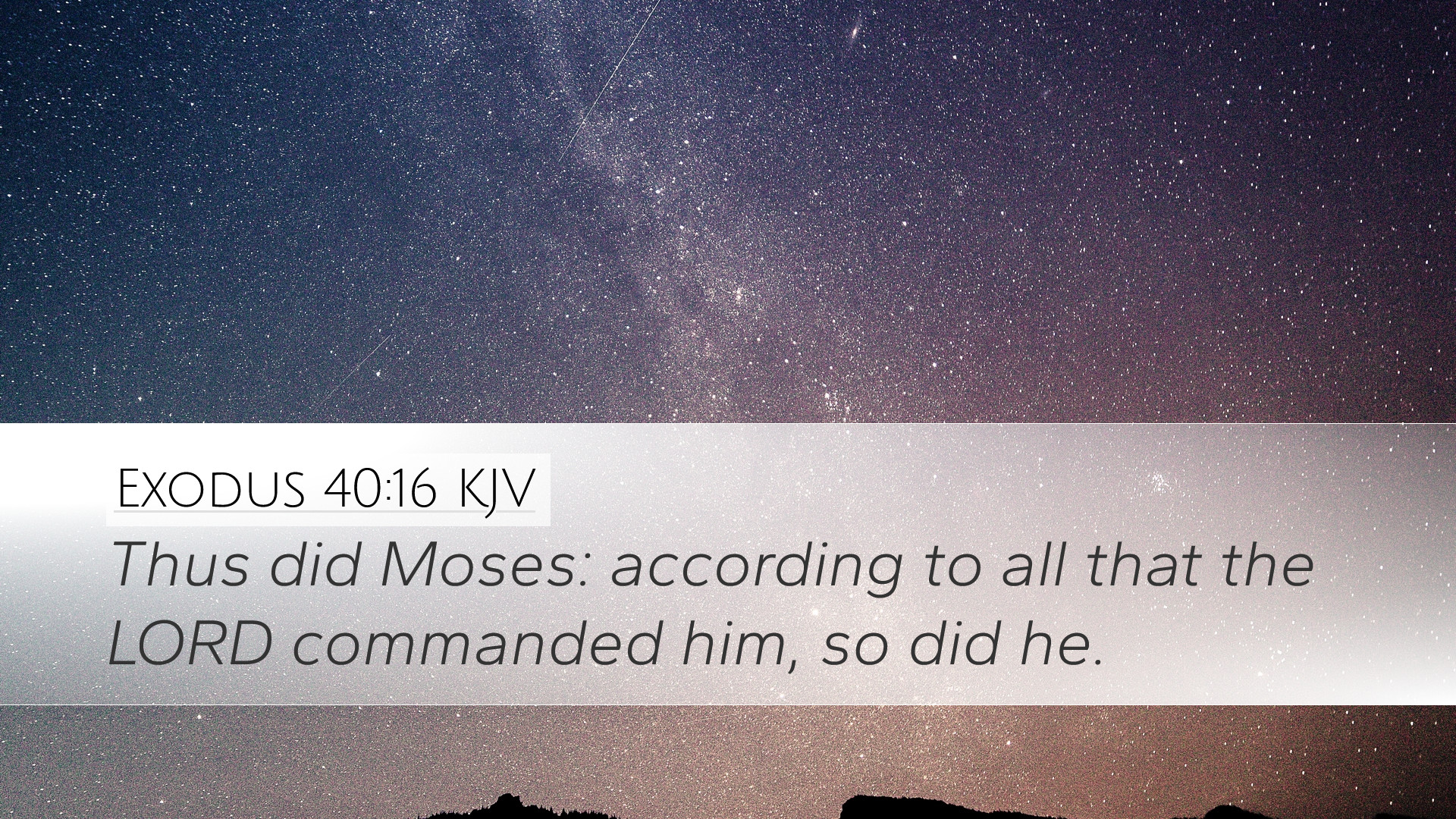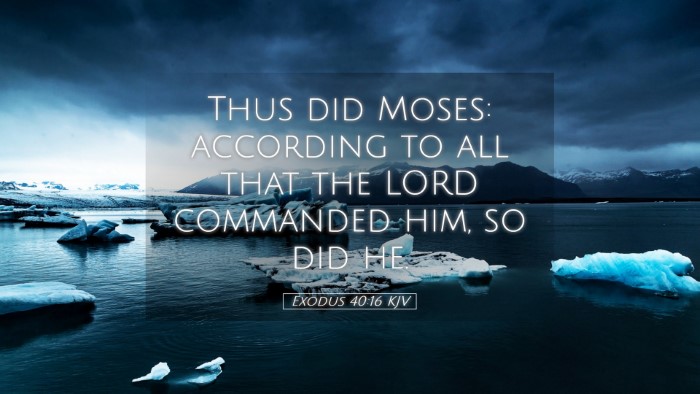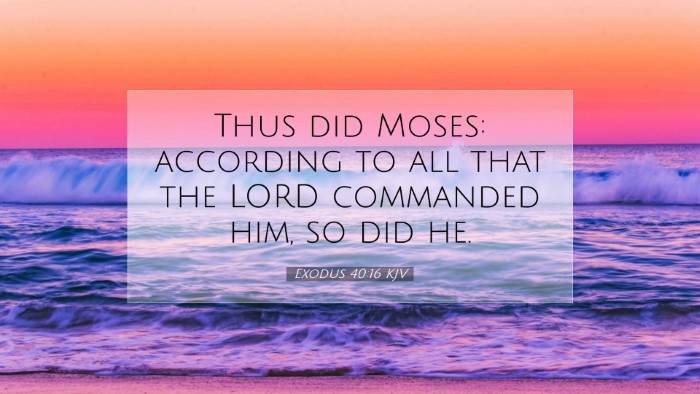Exodus 40:16 Commentary
Verse: "Thus did Moses; according to all that the LORD commanded him, so did he." (Exodus 40:16, KJV)
Introduction
This verse serves as a pivotal conclusion to the narrative concerning the construction and consecration of the Tabernacle. It underscores the obedience of Moses to God's commands, embodying a significant theme throughout the scriptures: the importance of adhering faithfully to the divine will.
Historical Context
The book of Exodus details the journey of the Israelites from slavery to freedom, culminating in the establishment of a covenant relationship with God. The instructions for the Tabernacle, received by Moses on Mount Sinai, represented God's desire to dwell among His people. As the Israelites prepared to enter the Promised Land, the construction of the Tabernacle was vital for their worship and organization as a community.
Commentary Insights
Obedience to Divine Command
Moses’ compliance with God's commands is emblematic of the faithful servant who does not act with partiality or selective observance. Albert Barnes notes that this obedience was "precise and exact," reflecting Moses' character as a leader chosen by God. Each detail followed according to the divine blueprint demonstrates a profound respect for God's order and holiness.
The Role of Moses
Matthew Henry emphasizes that Moses served as the mediator between God and the Israelites. His actions are representative of a larger obedience that the people were called to emulate. This verse not only highlights Moses' fidelity but serves as a model for leadership in the faith community, stressing that leaders must first be devoted followers of God's word.
Theological Implications of Obedience
Adam Clarke raises the question of the theological implications behind Moses' obedience. It reflects the nature of faith: true faith manifests itself in active compliance with God’s commandments. This verse illustrates how divine architecture—in the form of the Tabernacle—requires an obedient heart. Clarke notes that our actions must correspond to our covenantal relationship with God, making obedience a hallmark of biblical faith.
Applications for Pastors and Theologians
In contemporary ministry, this verse can inspire a renewed commitment to obedience and integrity in leadership. Here are several key applications:
- Encourage Active Obedience: Pastors should challenge their congregations to embrace a lifestyle of obedience to God's commands, underscoring that such obedience is integral to experiencing God’s presence.
- Leadership as Servanthood: Leadership in the church should reflect the qualities of servanthood demonstrated by Moses, emphasizing humility and submission to God’s guidance.
- Modeling Faithfulness: The behavior of church leaders can serve as a powerful model for congregants. Just as Moses obeyed, so too should leaders exemplify commitment to God’s will in their teaching and practice.
Conclusion
Exodus 40:16 stands as a testament to the uncompromising nature of obedience in the life of Moses and serves as an enduring reminder for all who seek to understand the depth of their calling. From historical, theological, and practical perspectives, Moses’ example encourages both personal and communal fidelity to God’s word. As this passage is revisited, may it inspire faithful adherence to God's commands in the pursuit of holiness and divine relationship.


